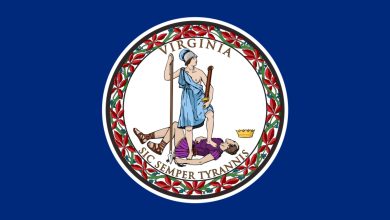Rural Health Transformation Program expected to expand access and improve health outcomes in Virginia
Richmond, Virginia – Governor Glenn Youngkin has announced the beginning of Virginia’s stakeholder engagement process for the Rural Health Transformation (RHT) Program, a new federal initiative created under H.R. 1, also known as the “One Big Beautiful Bill Act.” This landmark law, passed by Congress, establishes a $50 billion national program to strengthen health care in rural communities across the United States between Fiscal Years 2026 and 2030.
Virginia is eligible to receive up to $500 million in direct state allocations—$100 million annually for the next five years—and can compete for additional grants based on rural health needs, potentially bringing the Commonwealth’s total share to as much as $1 billion. The funding is intended to expand access to care, bolster the rural health workforce, and improve the quality and sustainability of service delivery.
“The Rural Health Transformation Program, established by the One Big Beautiful Bill Act, gives Virginia a historic opportunity to expand access to care, support providers, and deliver better outcomes for rural families,” said Governor Glenn Youngkin. “We will work closely with local leaders, providers, and federal partners to ensure this investment reflects community priorities and delivers lasting improvements to Virginia’s rural health system.”
Executive Directive and Community Engagement
To align the Commonwealth’s strategy with community needs, Governor Youngkin issued Executive Directive 12, instructing state agencies and partners to prepare for the federal investments. The directive emphasizes collaboration with local leaders, providers, and rural families to shape Virginia’s approach.
On August 27, Secretary of Health and Human Resources Janet Vestal Kelly launched the formal stakeholder engagement process by convening community representatives and providers. The purpose of the meeting was to share Virginia’s strategy for applying for federal funding and to begin gathering input from rural stakeholders.
The state’s application to the Centers for Medicare & Medicaid Services (CMS) is due in November. To guide planning, H.R. 1 identifies ten categories of eligible activities, including chronic disease prevention and management, rural workforce recruitment and retention, consumer-facing technology, adoption of AI and robotics, support for substance use and mental health services, cybersecurity upgrades, and other innovative care delivery models.
How Stakeholders Can Contribute
Virginia’s health agencies are actively inviting input from providers, patients, caregivers, and community organizations to ensure the state’s submission reflects real-world needs. Stakeholders can share proposals, perspectives, and supporting data by emailing [email protected] no later than September 15, 2025.
Ideas may include:
-
Proposals to improve health care delivery or access, based on best practices.
-
Perspectives from communities about current challenges and opportunities.
-
Research or studies that highlight rural health needs.
-
Partnership concepts for piloting or scaling solutions.
-
Existing strategic plans or analyses developed by organizations.
Submissions are limited to 10 pages and should include a program summary, detailed goals, implementation plans, metrics for measuring success, and strategies for sustainability beyond the five-year funding window.
Building a Healthier Rural Virginia
Governor Youngkin stressed that the initiative is about more than funding—it is about building sustainable solutions for long-term health improvement. By engaging rural communities directly in shaping the state’s proposals, Virginia aims to ensure that federal dollars support the priorities of families, providers, and local leaders.
As the November deadline approaches, the Commonwealth will continue working with stakeholders to craft a comprehensive plan that not only brings new resources to rural Virginia but also creates a model for future rural health innovation nationwide.
The engagement process represents a critical step in shaping the future of health care access and delivery for Virginians in rural areas, ensuring they have the same opportunities for high-quality care as communities across the state.




